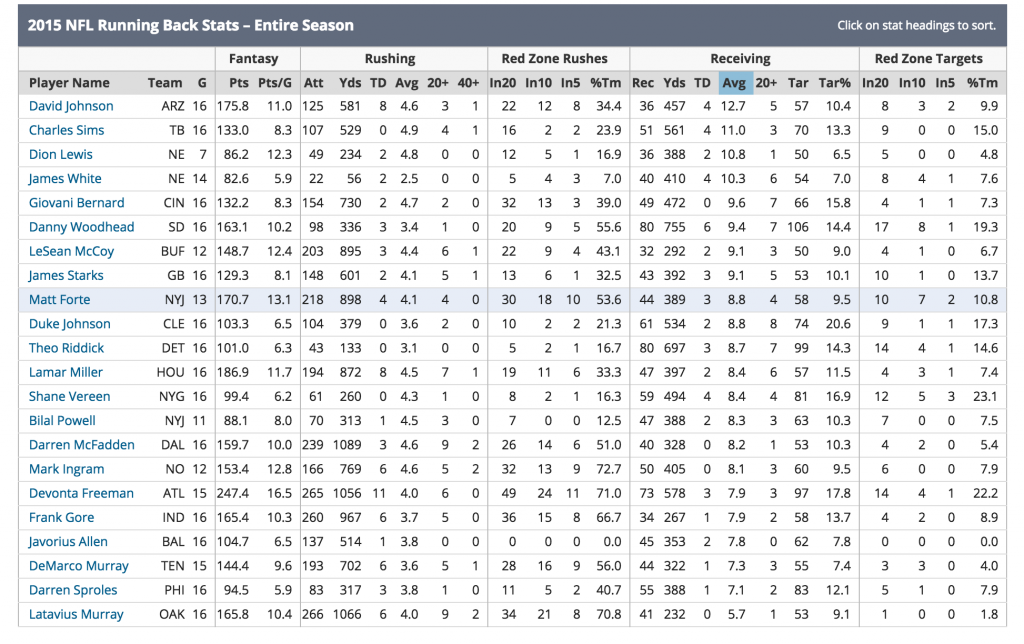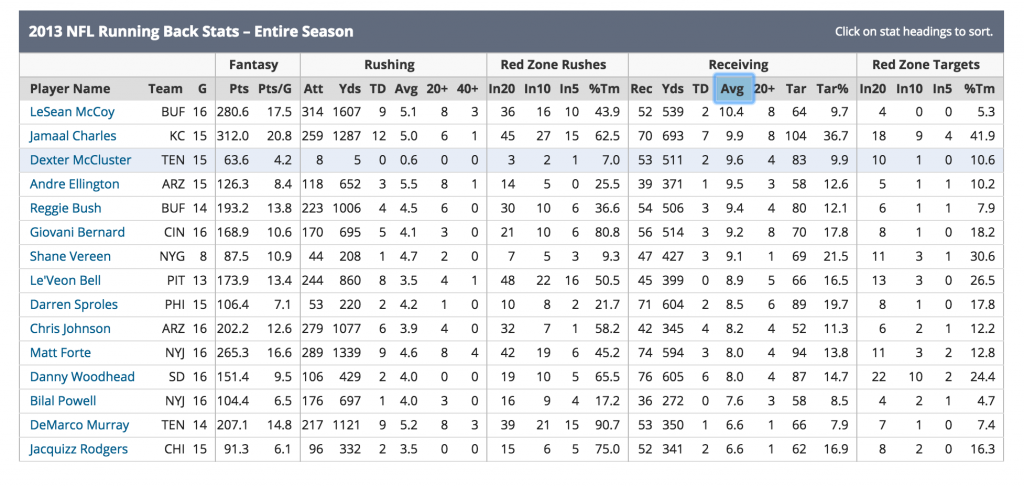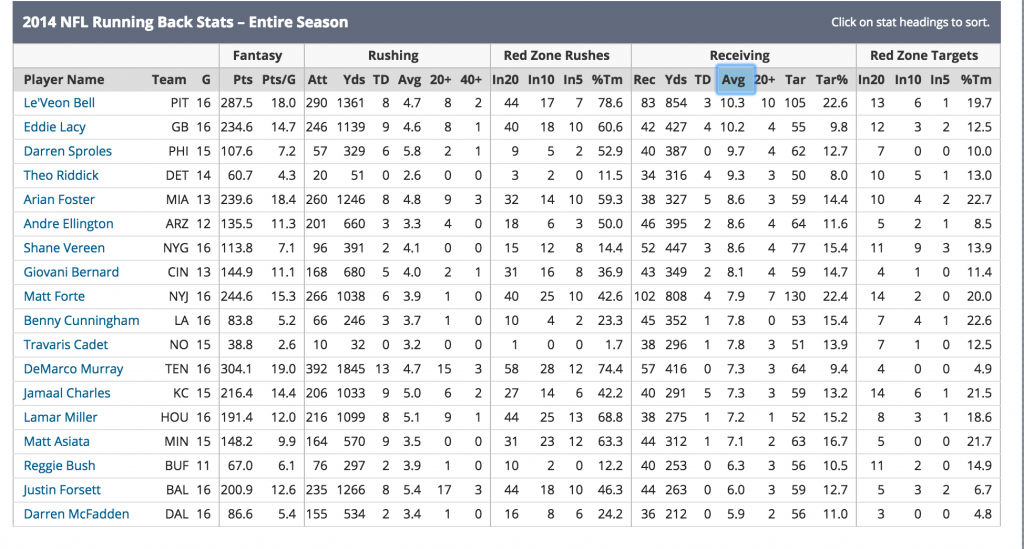We often talk about yards per catch, average depth of target and yards per target for wide receivers, but for running backs the discussion is usually limited to receptions and yards. Part of the reason is running backs aren't often running deep routes, and virtually all of them catch the vast majority of their targets because they're standing so close to the quarterback. But we can look at yards per catch which would incorporate two skills: (1) running deeper and more complex routes; and (2) gaining yards after the catch.
Among backs with 50 targets or more here were the YPC numbers from last year:
 David Johnson was a monster on 36 catches, and it's obvious the Cardinals should and will use him more often in 2016. Charles Sims averaged 11.0 YPC on bigger volume (51 catches), and he's apparently living up to his reputation as an elite pass catcher. (Sims also managed 10.0 YPC on 19 receptions as a rookie.) Beyond them, Danny Woodhead stands out for posting 9.4 YPC on heavy volume (80 catches). I've downgraded him in places, arguing at 32 and without being especially skilled, Woodhead could lose his job. But he was highly productive as a pass catcher on a per-play basis when compared to Darren Sproles (7.1 YPC), Devonta Freeman (7.9) and Shane Vereen (8.4).
David Johnson was a monster on 36 catches, and it's obvious the Cardinals should and will use him more often in 2016. Charles Sims averaged 11.0 YPC on bigger volume (51 catches), and he's apparently living up to his reputation as an elite pass catcher. (Sims also managed 10.0 YPC on 19 receptions as a rookie.) Beyond them, Danny Woodhead stands out for posting 9.4 YPC on heavy volume (80 catches). I've downgraded him in places, arguing at 32 and without being especially skilled, Woodhead could lose his job. But he was highly productive as a pass catcher on a per-play basis when compared to Darren Sproles (7.1 YPC), Devonta Freeman (7.9) and Shane Vereen (8.4).
Of course, YPC varies year to year, and in Woodhead's previous full season in San Diego (2013), he managed only 8.0 YPC on 76 receptions. Prior to that he had big YPC numbers in New England, albeit on one of the league's best offenses. But from his body of work, and given he's never at the bottom of the list, it's hard not to see him as one of the league's more effective pass-catchers out of the backfield, i.e., it's probably a skill and not just the role into which he's fallen.
Let's take a look at the 2014 and 2013 YPC leaders for RBs with minimum 50 targets:

One takeaway is some players are consistently on the low end of this list, e.g., Justin Forsett and DeMarco Murray. Last year, people were talking up Forsett as good fit for Marc Trestman's offense, but maybe that wasn't the case. And apparently rookie Derrick Henry is already outperforming Murray as a receiver in training camp.
In the end, I wouldn't go overboard on these stats - I'm sure scheme, quarterback and team context all have significant effects, and when the sample is smaller, one 80-yard catch and run can have an outsized impact. But at the extremes - when you have a David Johnson, Le'Veon Bell or Sims on the one hand, or a Forsett or Murray on the other - we can reasonably conclude something about those players' skills or lack thereof.




